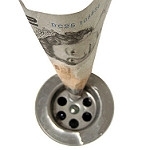We recently wrote about a large fraud case involving at least six connected companies. Each of these companies used false accounts, identity theft and fake documents to achieve large amounts of credit. When the goods arrived, they immediately vanished, but they were never paid for. The suppliers were left out of pocket, and the fraudsters disappeared with the proceeds.
Clearly, this was a very large and highly organised fraud, and 6 companies known to be involved have been liquidated. This kind of operation is unusual, but increasing in prevalence and we suspect it will only get worse as more criminals start to hear about it.
- +44 (0) 1772 454505
- info@safe-collections.com
- Mon - Fri 8:00 - 20:00
When Tesco was exposed for its long payment delays, it exposed an ugly trend among large businesses: delay, delay and delay some more, until your supplier is on its knees. And while the supermarket provided an extreme example of this unethical practice, a shockingly large percentage of global businesses see late payment to suppliers as a “fact of life”.
Read more: 74% of global businesses say late payment is "a fact of life"
British businesses are facing a unique set of circumstances right now - the global economy is emerging from the deepest recession in living memory, domestic trade is uncertain with the EU Referendum looming, and there are issues of legislation from the National Living Wage to auto-enrolment pensions that are affecting company finances on a national scale too.
With all of this in mind, what are the implications for businesses of all sizes when it comes to getting paid for the work they do?
London based start-up Crowdmix Ltd was in the process of developing a social media music platform. But before it could even launch its product fully, it ran out of money despite having previously raised £14 million in funding.
As of Monday 11 July, 2016, it has left its creditors, many of them freelance contractors, tens if not hundreds of thousands of pounds out of pocket. If you’re owed money by Crowdmix the prognosis for recovery is not good, so let’s look at what happens next.



